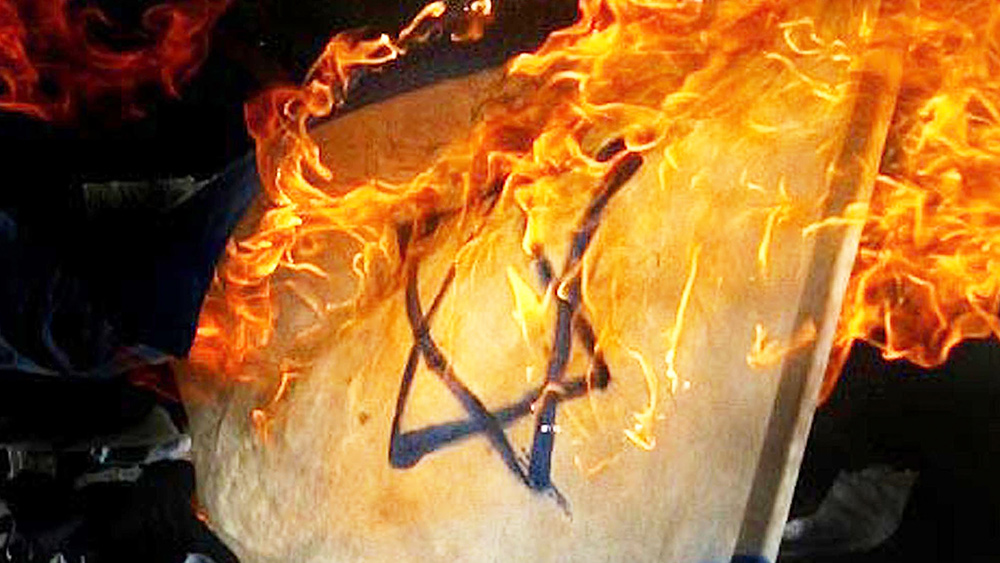 Parler
Parler Gab
Gab
Netanyahu pushes back against protesters in video message
In a video message, Netanyahu pushed back against claims that he is not doing everything he can to get the hostages back. “I reiterate: I am committed to returning all of our hostages, women and men, civilians and soldiers, the living and the victims. I will not leave even one behind,” he insisted. He also took aim at those who are calling for elections to be held right now, saying that such a move during war “will paralyze the negotiations for the release of our hostages and in the end will lead to ending the war before achieving its goals, and the first to commend this will be Hamas, and that says it all.” During the October 7 massacre in Israel, Hamas took 235 people hostage. At the end of March, it is believed that there were 130 hostages still alive in Gaza, while 34 were believed to be dead. Among the living hostages are 111 men, 19 women, 2 children under the age of 5, and 11 foreign people. The protests come as negotiations for a ceasefire and discussions about releasing hostages are getting underway in Cairo, with the U.S., Egypt and Qatar mediating the proceedings. A proposal put forth by CIA Director Bill Burns would see Israel releasing a significant number of Palestinian prisoners in exchange for 40 Israeli hostages in the first part of a three-part ceasefire deal. The U.S. is also pushing for Israel to allow northern Gaza residents to return to their homes without restrictions, something that Hamas has been demanding but Israel has been rejecting. Hamas leadership is believed to be reviewing the proposal and an answer is expected in a few days. In the last six months of fighting, more than 33,000 Palestinians have been killed and more than 75,000 have been wounded in Gaza, according to the Hamas-run Gaza Health Ministry. Much of Gaza, particularly in the north, is also dealing with starvation and famine. Sources for this article include: RT.com AlJazeera.com Time.comCalifornians now ARMING themselves after Border Patrol dumps illegals on the streets
By Ramon Tomey // Share
Donald Trump may be forced to miss his son Barron’s high school graduation due to New York trial
By Arsenio Toledo // Share
House Speaker Johnson to introduce 4 SEPARATE BILLS for foreign aid
By Ramon Tomey // Share
Israel’s DEBT has doubled to nearly $43 billion after declaring war on Gaza
By Richard Brown // Share
Governments continue to obscure COVID-19 vaccine data amid rising concerns over excess deaths
By patricklewis // Share
Tech giant Microsoft backs EXTINCTION with its support of carbon capture programs
By ramontomeydw // Share
Germany to resume arms exports to Israel despite repeated ceasefire violations
By isabelle // Share










